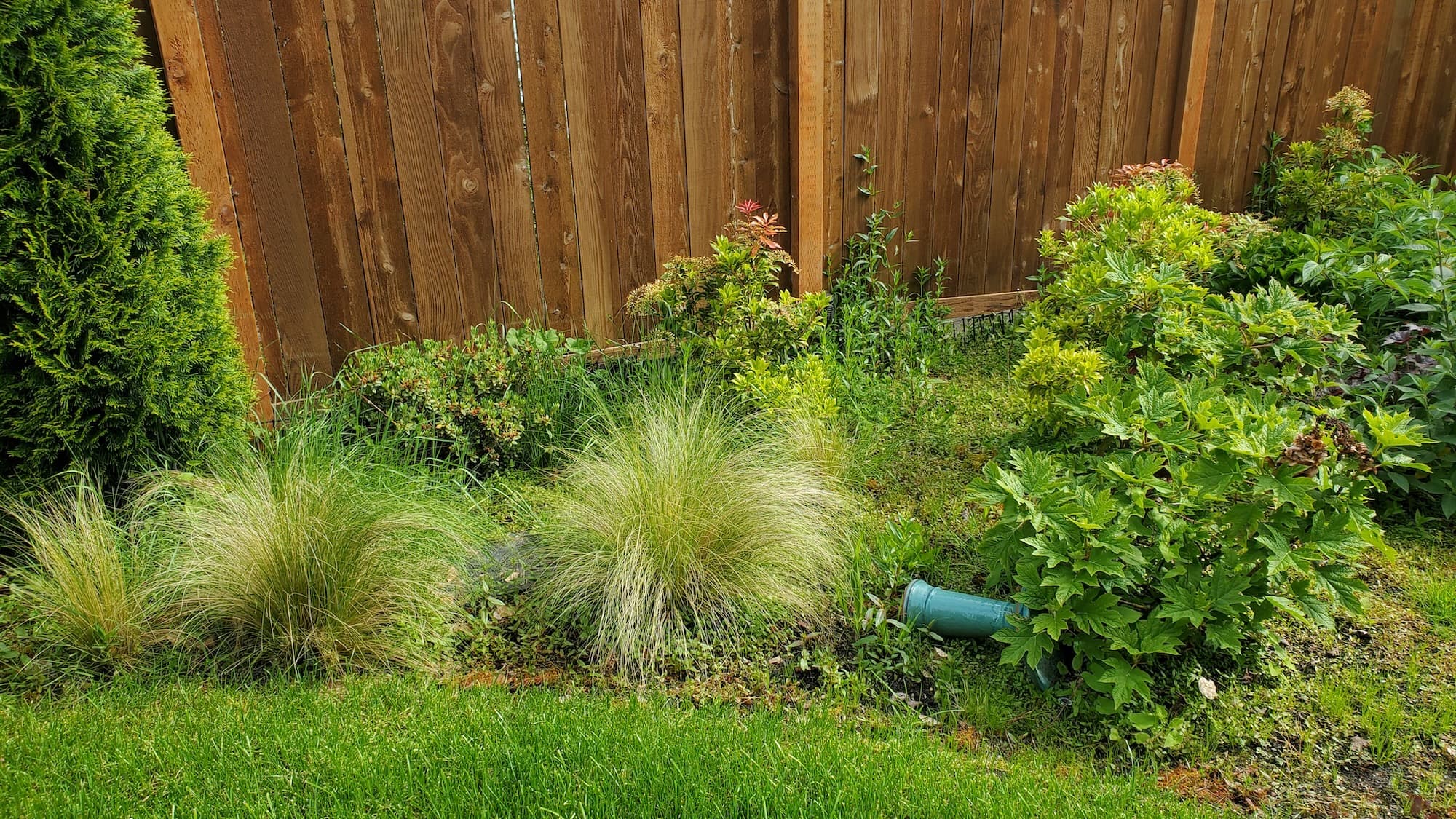West Seattle Remove weeds from vegetable beds
Homeowner’s Issue
West Seattle gardens face a specific set of challenges: heavy, often compacted glacial soils in hillside yards, persistent winter rain and moss in shaded spots under big cedars, and fast spring flushes of annuals and bindweed from nearby greenbelts. Lots around The Junction, Admiral, and Alki are a mix of sun and shade—south-facing beds dry faster and need thinner, frequent watering during dry spells, while north-facing beds collect moisture and moss. Sloped properties on the east slopes toward Fauntleroy require extra erosion control; loose soil invites blackberry migration from neighbor parcels. HOA rules in planned communities can favor tidiness and low-mow beds, which makes mulching and low-maintenance plant choices important.
Weeds here germinate early (late winter–early spring) and again in late summer after rains break dry spells. Soil organic matter is often low in raised beds that haven’t been top-dressed, so weeds exploit nutrient gaps. Sustainable, herbicide-free control—manual removal, solarization, composted mulch, and soil amendment—is both effective and required by many gardeners who want safe vegetables and healthy soil. Our local approach prioritizes root-out weeding, mulch layering, and soil rebuilding so beds stay productive and quiet between visits.
Our Quality Service
We hand-remove weeds, improve soil structure, and add organic mulch to suppress regrowth without chemicals. Typical visit: 1–3 hours for a standard raised-bed setup, longer for deep-rooted perennial weeds or large patch infestations. For full-bed renovations expect a half-day to full day depending on bed size and access.
Tools and methods:
- Hand tools, hori-hori knives, dandelion forks, and soft hoes for root removal.
- Soil loosening with forks and light cultivation—no tilling that damages soil biology.
- Organic mulch application (compost, wood mulch, or straw) and optional biodegradable fabric for pathways.
- Green hauling or yard-waste bin options for removed plant material.
We schedule around West Seattle weather—we avoid working in saturated soil unless necessary—to protect soil structure and reduce erosion. Seasonal timing: late winter for persistent perennials, spring for annual flush, and late summer for a clean-up before fall rains.
Benefits:
- Safer vegetable beds without herbicides.
- Lower long-term maintenance and better yields.
- Improved curb appeal and reduced erosion on slopes.
What’s Included
- Assessment of bed health, shade/sun mapping, and weed ID.
- Manual removal of weeds, including root extraction where practical.
- Light soil cultivation and incorporation of compost when requested.
- 2–3” layer of organic mulch (unless you prefer straw/compost).
- Collecting and hauling away debris per your choice (green bin or haul-away).
Options / Upgrades:
- Add compost/top-dress for improved soil fertility.
- Mulch + biodegradable landscape fabric for high-traffic paths.
- Organic weed suppression matting for new beds.
- Repeat maintenance visits (monthly, bi-monthly, or seasonal).
Before & After / Expectations
Be honest: we will make a mess while we work—loosened soil, pulled roots, and wet mulch. Noise is limited to hand tools and occasional wheelbarrow use. On-site access and clear parking make jobs faster; narrow alleys or steep stairs add time and extra hauling cost.
Typical timelines:
- Small raised bed tune-up: same-day completion.
- Full bed renovation with compost and mulch: half–full day.
- Large or heavily infested beds: multiple visits.
Care tips for West Seattle:
- Water newly mulched beds in the morning during summer; keep moist but not soggy.
- Watch for spring flushes after the first warm rains; plan a tune-up in March–April.
- Control moss and ivy in shaded corners by improving drainage, adding mulch, and trimming canopy to increase light.
- Avoid working beds when soil is saturated to prevent compaction and erosion on slopes.
FAQs
Q: Do you use herbicides?
A: No. All work is sustainable and herbicide-free—manual removal, mulch, and soil management.Q: How often should I schedule maintenance?
A: For most West Seattle vegetable beds, bi-monthly in growing season keeps weeds manageable; monthly if you have heavy pressure.Q: What happens to the removed weeds?
A: We compost clean annual weeds where appropriate, or haul to green-waste per your preference.Q: Can you help with soil that drains poorly?
A: Yes—we recommend raised beds, compost amendments, and small drainage fixes to reduce standing water.
Call to Action
West Seattle homeowners: if your vegetable beds are overwhelmed, we’ll get them clean and keep them that way with sustainable, practical work. Quick scheduling, honest estimates, and local experience from Admiral to Alki. Free photo estimates available; onsite visits arranged as needed.
Email neatandtidyseattle@gmail.com or call 206-538-9344 to book a free estimate. Mon–Sun: 9am–6pm. Licensed • Bonded • Insured.










